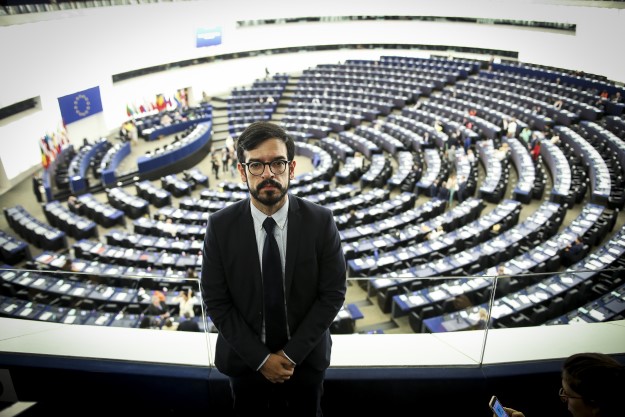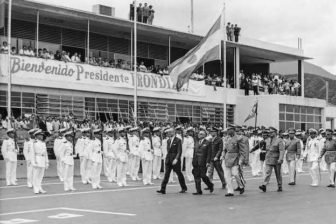For over 20 years, Venezuela has lived continued waves of civil unrest and political turmoil. At first, the world was skeptical and deaf to the opposition’s outcries, but soon the consequences of the regime’s oppressive and misguided policies began to bear fruit. As staple goods disappeared from store shelves, and public figures were persecuted, arrested, tortured and exiled, the world slowly began to recognize there was an increasingly unsettling issue with democracy in Venezuela.
But 20 years is too long, and change is well overdue. Thankfully, we have seen in 2019 how world leaders’ stance on this repressive regime has shifted greatly. However, much more work still needs to be done.
There is a new opportunity on the horizon with the upcoming UN General Assembly, which will kick off on September 17. At this gathering, hundreds of world leaders and governments, including those who openly recognize National Assembly leader Juan Guaidó as interim president, will discuss and take action on the world’s most pressing issues. Ending Venezuela’s crisis should be one of them.
The international community has already taken strong actions in recent months that not only demonstrate the important role it plays in Venezuela’s crisis, but have allowed the opposition to attain a position of power, as a myriad of countries, parliaments, and international organizations support Juan Guaidó and the legitimate National Assembly. Moreover, key leaders raising their voices against the regime’s human rights violations has helped determine those responsible for such crimes, who in turn have subsequently been sanctioned. Additionally, these international efforts have also led countries such as Colombia, Ecuador, and Peru to implement new immigration policies to attend the increasingly desperate situation of millions of Venezuelans that have fled the country.
On the other hand, the opposition, the now interim government of Juan Guaidó, has battled for years on every single front it has been able to. For 20 years we have peacefully taken the streets to demand our rights, despite the regime’s repressive ways; We have fought holding high our Constitution in the National Assembly, even as elections and negotiations are compromised. We have fought and will continue to fight to restore free and fair elections. Unfortunately, the Maduro regime recently abandoned the latest attempt to find a negotiated solution to Venezuela’s crisis, which was sponsored by Norway.
Meanwhile, joint international and national efforts have opened the door to investigating corruption schemes and identifying those responsible for Venezuelans’ hunger and suffering. It has also allowed thousands of people abroad to learn about the situation and provide aid to help alleviate the dire reality.
The United Nations has increasingly recognized this grave situation. Last July, the UN High Commissioner for Human Rights (UNHCHR) Michelle Bachelet, submitted a report that accurately described the astonishing deteriorated humanitarian situation in Venezuela and rightfully put the blame on a regime that for over a decade implemented laws and practices that restricted democratic space and enabled the regime to commit numerous human rights violations. Two months later, in an oral update of the situation issued on September 9, Bachelet stated that millions of Venezuelans continue to suffer rights violations, including dozens of possible extrajudicial killings carried out by the regime’s special police force.
On top of this, UN Refugee Agency and IOM in June assessed that over 4 million Venezuelans have fled the country, becoming one of the single largest population groups displaced from their country. In April, the UN Office for the Coordination of Humanitarian Affairs estimated that 7 million people in Venezuela are in need of humanitarian assistance, which represents 25% of the population.
Venezuela must be at the top of the agenda and a priority in the discussions. The General Assembly is the natural space in which the UNHCHR report should be discussed – the first UN report that, while long overdue, accurately describes Venezuela’s current and dire situation which the opposition has denounced for over 20 years. The time to put the report into tangible action is now. This gathering of countries, governments and world leaders can no longer ignore what the UN itself has already recognized – Venezuela is in urgent need of change, and multilateralism can help address humanitarian needs and reach peaceful conflict resolutions. We need the international community to seize this opportunity and not make Venezuela just another recurring issue on UNGA’s agenda.
—
Pizarro is a Venezuelan opposition leader in exile and representative of the National Assembly for the Primero Justicia political party.








